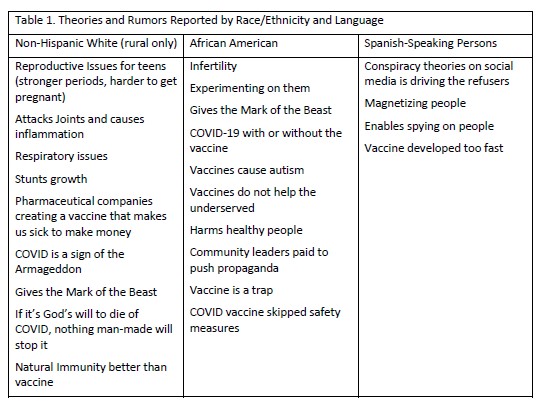Immunizations/Delivery
Immunizations/Delivery 1
600 - A Qualitative Exploration of COVID-19 Vaccine Hesitancy among Parents
Publication Number: 600.224
- AH
Adrien C. Honcoop, MPS (they/them/theirs)
Graduate Researcher
University of Nebraska College of Medicine
Omaha, Nebraska, United States
Presenting Author(s)
Background:
COVID-19 vaccine uptake in young children is low compared to adolescent and adult vaccine uptake. Addressing parental COVID-19 vaccine hesitancy is critical to improving vaccine uptake. COVID-19 vaccine-related concerns have been previously reported through online surveys, but qualitative data from key informant interviews and focus groups may add more specific context to inform future interventions.
Objective:
To identify parental attitudes towards COVID-19 vaccines by race/ethnicity and rurality and parental attitudes regarding acceptance of COVID-19 vaccines for their children as compared to themselves.
Design/Methods: Parents of children aged 2-17 years old were included in focus groups or key informant interviews (KIIs) based on self-reported vaccine hesitancy. Participant recruitment focused on engaging individuals from sociodemographic backgrounds disproportionately affected by COVID-19-related vaccine hesitancy, including rural White, Black/African American, and Spanish-speaking persons. Recruitment continued until thematic saturation was reached. Parents endorsing vaccine acceptance and refusal underwent KIIs, and those endorsing vaccine hesitancy participated in focus groups. Transcripts underwent discourse analysis and thematic analysis, both individually and as a collection. Themes were revised until coders reached consensus.
Results: Overall, 36 participants completed the study. Eight parents took part in KIIs; the remaining 28 participated in focus groups. Themes were categorized into the overarching categories of trust, mandates/parent’s choice, information sources, vaccine decision-making, and theories/rumors. All groups expressed that they would listen to their doctor and pediatrician for information about COVID-19 vaccines. Infertility was commonly mentioned as a concern, as well as misinformation about vaccines in general (i.e., natural immunity superior to vaccines, autism, harming healthy people). Vaccination decision-making was reportedly influenced by of the amount of information available to them and scientific research, possible positive and negative long-term effects, and possible interactions with other chronic conditions. All groups felt that parents should have final say on COVID-19 vaccination. Reported COVID-19 vaccine theories by each group have been included in Table 1.
Conclusion(s): Parents/caregivers report a variety of rumors and potentially addressable vaccine concerns. Our results will inform specific, targeted interventions for addressing vaccine hesitancy.
